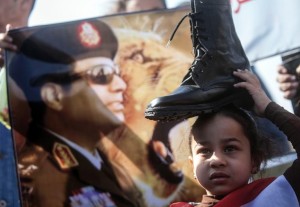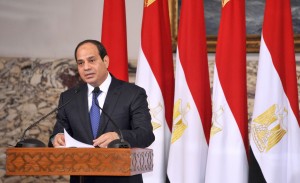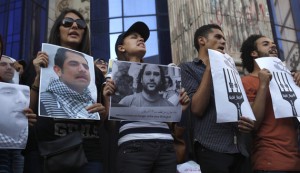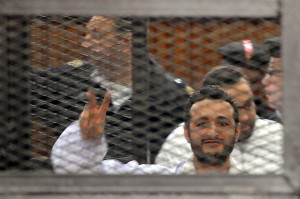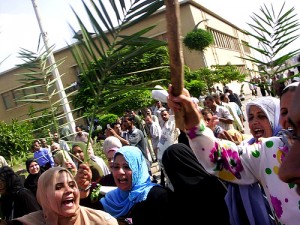
“Egypt’s youths feel disenfranchised after revolution,” written in May 2013 in the L.A. Times, describes the disparity between the demands of the youth that lead the revolution and the mindset of the older generation in power. The youth are unable to take political action because they lack the resources to run for office and win. The older generation seems to give in to part of the youth’s requests only to pacify protesters and prevent any further disorder. However, implementation of new policies has not and most likely will not take place. The youth are feeling detached and disappointed as conditions worsen in all sectors of Egyptian society.
“Egypt youth disappointed ahead of anniversary” showcases similar sentiments from some leading youth activists about prospects of positive social change that remained in January of 2014. During the constitutional referendum, a large portion of the youth boycotted the vote and have began to embrace an attitude of apathy toward the political process. The Egyptian media have been accused of leading smear campaigns against the most popular activists from the revolution, in an attempt to discredit them. A blogger, who goes by the name “Sandmonkey” ended the article by claiming the older generation in power is resisting change. He points out that 70% of the Egyptian population, made up of the younger generation, is not being represented politically. Because of the three factors of political apathy, media intimidation, and political stagnation led by the older generation, the Egyptian people remain stuck in their cycle of change and cannot seem to move past the age of protests.
As the political landscape in Egypt seems to remain stagnant, it is possible that the youth will push for a more radical view (globalization) if they can escape from the political apathy they feel in the present. This is because they feel as though a representative democracy cannot fulfill their needs. A strong military or state representatives will not concede to their demands but will push their own agenda. Therefore, in a radical version of democracy, people will be represented at all levels of governance. If the people are able to participate directly in the decision-making process, it may combat apathy and contribute to more appropriate policy changes. However, the problem seems to lie in the concentration of undeserved power in the hands of the state government that cannot be dispersed. Unless the youth can defeat the underlying power structure and purify the government, they will not feel the changes they demanded in their protest. This process would be supported by political liberals who see the value in building a pure, strong democracy from the ground up in order to create a long-lasting effective government. Although the Egyptians may be forced to wait this long, it is unfortunate that the deteriorating conditions may not allow this time-consuming process to take place.


